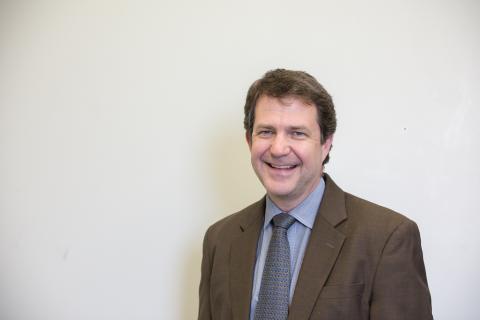Dr. Brian G. Osborne – Inequity, Education and Hope

Dr. Brian G. Osborne comes to Lehigh’s College of Education with an impressive resume.
Five years as superintendent at the City School District New Rochelle. Another seven years as superintendent at the South Orange-Maplewood School District in Maplewood, New Jersey.
Leadership positions in the New York City Department of Education – the country’s largest school system – and a doctorate and master’s degree in administration, planning and social policy from the Harvard Graduate School of Education.
But to get to the heart of his story – and to the root of his approach to education – you need to go back nearly 30 years, to an underperforming school in New York City’s South Bronx.
In those days, Osborne was a math and science teacher, part of a team of educators charged with founding new schools in New York City.
The school in question was a large comprehensive high school called James Monroe.
“It was really in every respect a deeply struggling school,” Osborne said, with low graduation rates, high suspension rates, an unusual amount of police activity and difficulty maintaining a teaching staff.
So, the board of education took the school and broke it into six smaller schools, including the New School for Arts and Sciences, where Osborne found himself.
How would this school be different? First, they started with just ninth graders, and added a new grade each year, allowing the school to grow at a deliberate pace.
And Osborne and his team could hire the teachers of their choosing, which gave them the freedom to pick people who truly wanted to be there.
“It was great. What I really learned from that experience is that the culture of the adults in a school really makes a tremendous difference,” he said.
It wouldn’t be easy. But then, the students weren’t used to easy. They were kids who couldn’t get accepted to other schools within the city’s high school choice system.
Many of them were behind grade level. Nearly all of them lived in poverty, had experienced violence, or conflict with the police. And they were in a system that typically didn’t invest must in educating kids from their background.
“So, for me, it was just an illustration at an early stage that it’s truly up to the adults to provide an environment that will support the child,” Osborne said.
“We never gave up on a kid. Sometimes that meant going to court to support a kid. Sometimes that meant going to their homes, sometimes that meant going and getting them out of bed. What it meant was that when we were in class, we expected the students would engage intellectually in the material respectfully with us and one another.”
The results? The New School for the Arts could eventually boast an 80 percent graduation rate – compared to a rate of 14 percent at James Monroe. And 80 percent of the New School graduates would go on to college.
That got Osborne interested in whether what worked at one school could become part of a larger system, and in the nexus between education and social justice.
And that’s where things can get frustrating.
“We really know now all that we need to know to educate every child in this country to the highest levels,” he said.
We know more than we’ve ever known about bout how children learn, about brain development at young ages, about the type of instruction methods that work and how children respond to stress and adversity, as well as challenge and support.
“What’s discouraging is that the political will doesn’t seem to be there,” Osborne says. “We still have a tremendous depth of need.”
In many ways, things have gotten tougher since Osborne became an educator. Schools have become increasingly re-segregated, social media overexposure has created a new wave of emotional challenges and the education system is putting more and more focus on teaching to what’s testable.
How will he take what he’s learned you learned and apply it to Lehigh?
Osborne points to his own training. Everything he accomplished as superintendent and in other leadership positions, he says, is attributable to the training he received.
“What I’m hoping to be a part of here at Lehigh is to create that same context of very high expectations, rigorous learning experiences for students who aspire to be educational leaders so that they’re ready,” Osborne says.
“They’re not going to be ready for everything that comes, but they’re going to be ready and have a fundamental sense of confidence about their ability to do the job to act courageously in difficult circumstances.”